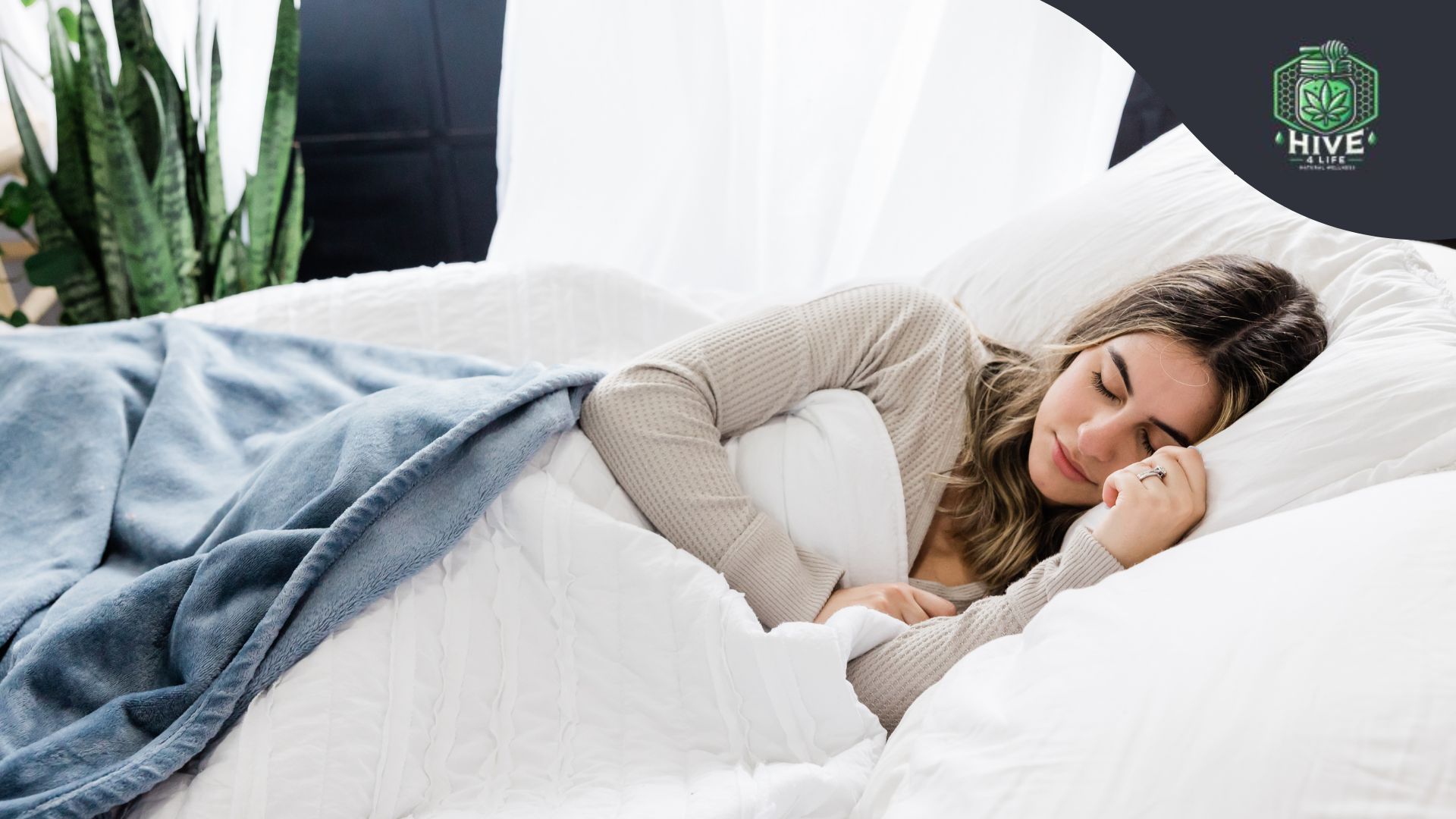Struggling to fall asleep or stay asleep? You’re not alone. Millions of adults face sleep issues, from mild restlessness to chronic insomnia. While melatonin and prescription sleep aids help some, others are exploring CBD for Sleep as a natural alternative. Derived from the hemp plant, CBD may promote relaxation, reduce anxiety, and support a healthy sleep cycle without the grogginess of traditional remedies.
CBD, or cannabidiol, has skyrocketed in popularity recently, especially as a wellness product. But can it really help with sleep? Here’s everything you need to know about using CBD to achieve better rest, backed by science and expert recommendations.
Understanding Sleep Problems
Getting enough high-quality sleep is crucial for overall health, yet for many, it remains elusive. Common sleep disorders include:
- Insomnia: Difficulty falling or staying asleep.
- Sleep apnea: A condition that causes breathing interruptions during sleep.
- Restless legs syndrome (RLS): An urgent, uncomfortable feeling to move your legs while trying to sleep.
- Anxiety-induced sleep disturbances: Trouble falling asleep due to a racing mind or stress.
Left unmanaged, chronic sleep problems can lead to serious health issues, including an increased risk of heart disease, obesity, and depression. Finding effective, sustainable solutions for better sleep is a priority for many—and this is where CBD is gaining attention.
How CBD Works
To understand how CBD might help with sleep, it’s essential to know how it interacts with the body. CBD works primarily through the endocannabinoid system (ECS), a complex network of receptors and neurotransmitters that help regulate vital functions like mood, stress, and—you guessed it—sleep.
CBD is thought to influence ECS receptors, potentially promoting relaxation, reducing anxiety, and even easing discomfort that might interfere with sleep. Although research is ongoing, early studies suggest CBD could be beneficial for promoting better sleep patterns, primarily by addressing root causes like stress or pain.
Key Scientific Insights
Here are some notable ways CBD interacts with the body to support sleep:
- Reduces Anxiety: Studies have demonstrated CBD’s ability to reduce anxiety, one of the leading causes of sleeplessness. This creates a calming effect that helps ease into rest.
- Regulates REM Sleep Behavior: preliminary research indicates that CBD can positively impact REM sleep behavior, potentially supporting deeper, more restorative sleep cycles.
- Eases discomfort: By alleviating chronic pain, CBD allows individuals to relax more and reduces middle-of-the-night disturbances.
Benefits of CBD for Sleep
CBD offers several potential benefits for those struggling with sleep issues, including:
1. Improved Relaxation
CBD promotes feelings of calm, which can help individuals wind down after busy or stressful days.
2. Faster Sleep Onset
Some people report falling asleep faster when using CBD, possibly due to its anxiety-reducing effects.
3. Deeper, Restorative Sleep
Emerging evidence suggests CBD may improve the quality of sleep cycles, leading to better overall rest.
4. Non-Habit Forming
Unlike prescription sleep medications, CBD is considered non-addictive, making it a more natural alternative for long-term use.
Choosing the Right CBD Product
Not all CBD products are the same, so selecting the right one for your sleep needs is critical. Here’s what to look for when choosing your CBD product:
1. Forms of CBD
- CBD Oil or Tinctures: Great for precise dosing and quick effects. Simply place drops under your tongue.
- CBD Gummies: A tasty, pre-measured option that’s easy to incorporate into your bedtime routine.
- Capsules: Convenient and discreet but may take longer to take effect.
- Topicals: Less common for sleep but ideal for easing localized pain or tension that could interfere with rest.
2. Quality Indicators
- Ensure the product uses third-party lab testing for quality and purity.
- Look for products labeled “Full-Spectrum” or “Broad-Spectrum” for the added benefit of other cannabinoids and terpenes.
- Choose organic, pesticide-free hemp products for the best results.
3. Dosage Matters
The right dosage is highly individual and may require some trial and error to find. Start with a low dose (e.g., 10–20 mg) and gradually increase if needed.
Usage and Dosage Recommendations
To get the maximum sleep benefits from CBD, consider the following tips for its usage and dosage:
- Timing: Take CBD 30–60 minutes before bedtime to allow time for its calming effects to set in.
- Start Low, Go Slow: Begin with a small dose and increase gradually as needed. For sleep, most users find doses between 25–50 mg to be effective.
- Consistency is Key: Like many wellness products, CBD might work better with consistent use rather than as a one-off remedy.
Safety and Side Effects
CBD is widely regarded as safe, but there are a few potential side effects to keep in mind, especially for new users or those on medications:
- Side Effects:
- 1) Grogginess
- 2) Dry mouth
- 3) Low blood pressure
- Medication Interactions: Always consult your healthcare provider before adding CBD to your routine, especially if you take prescription medications.
- Source Quality: Ensure your CBD product comes from a reputable source to avoid contamination or misleading claims.
Should You Try CBD for Sleep?
If you’re seeking a natural alternative to improve your sleep, CBD could be worth trying. Its potential to calm anxiety, reduce discomfort, and promote deeper rest makes it a promising option for many. However, as with any supplement, it’s critical to consult a healthcare professional before trying CBD—especially if you’re new to it or have ongoing health conditions.
Start with high-quality CBD products, keep your expectations realistic, and track your results to find what works best for your body and lifestyle. Better sleep could be just a few drops or gummies away!
Read More On
10 Benefits of CBD Gummies
Can You Fly With CBD Gummies?
Will CBD Oil Show Up on a Drug Test?
Does CBD Oil Have Side Effects?
How Do You Use Pet CBD Oil?





